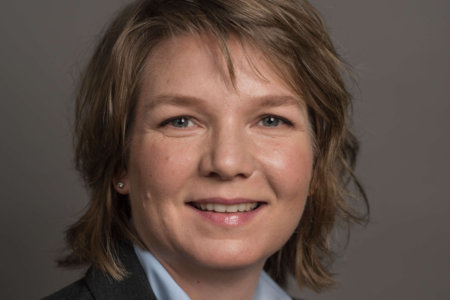
Think about Indonesia and what comes to mind? Being half-Indonesian, the first things to mind are great food and even greater people.
But I also think about the nightmarish traffic jams (or, as the locals call it, “macet”), overpopulated major cities, extreme poverty, pollution, and active volcanoes.
It’s not a vision of sustainability in Indonesia — but Izzaldin Soerono thinks it has a shot.
“I think we do have a lot of innovators in the country who are trying to create new ways of doing things, but there is not enough support from the government or from bigger companies, such that these solutions can be done at scale,” says the sustainability consultant for KPMG Indonesia.
“The economy is dominated by big incumbents and state enterprises, and because they control a lot of the market, it is very difficult for small players and small innovators to enter the market with their innovation.”

According to Izzaldin Soerono, storytelling is a powerful skill to have if you want to resonate, communicate, and persuade the public. Source: Izzaldin Soerono
Though it’s neither Finland nor Denmark, Jakarta has declared its commitment to achieve the 17 United Nations Sustainable Development Goals (SDGs) by 2030.
Soerono is playing a part in this. In his role, he advises businesses on how to overcome various challenges, especially those related to climate change.
But he uses neither numbers nor science to persuade companies to do better for the planet — he can only rely on a far more ancient skill.
Build a story for your business
“Storytelling is not really like a technical business skill, but I feel like it’s a powerful skill to have if you want to resonate with other people, you want to communicate, and you want to persuade people,” he says. “If you just mention numbers to people, they will forget it. What sticks are the stories.”
He learned this during his Master in Management degree at INSEAD. Among its curriculum was storytelling, which drew his attention and ultimately led him to join the top French business school.
“What we were told to do was to tell stories from our personal life, but we were guided by the professor to tell them in an effective way,” he says. “So we were trained to structure our story better, to use better intonation and expressions, and I really felt the effect of the course, because I think ever since I took that course, I became much better at telling stories and communicating even in professional settings.”
His own story is more straightforward. For most of his life, he was living in Jakarta, Indonesia – never been out of the country, stuck in a specific bubble.
That is, until he left for France.
“The 10 months I spent at INSEAD were very eventful, very meaningful. I developed a lot as a person,” he says.

Izzaldin Soerono graduated with his Masters in management at INSEAD in 2023. Source: Izzaldin Soerono
How to achieve sustainability in Indonesia
Ultimately, according to Soerono, what Indonesia needs is to find greener sources of energy not only to address climate change, but also to make sure that those sources are reliable and affordable as well, which is why innovation and its governance are vital for the country.
“I think what could be done is the government could perhaps provide more incentives such that innovators could get rewarded for their originality and innovation, as well as just supporting and enacting policies that also help protect these innovations,” he says.
Soerono compares Indonesia to European countries that are way ahead on sustainability. Twenty-seven European Union (EU) countries have implemented the Fit for 55 package, a climate law designed to reduce their carbon footprints.
Their objective is to cut net greenhouse gas emissions by at least 55% by 2030 and achieve climate neutrality by 2050.
“So what happens is a lot of the practices we do in Indonesia, we actually borrow or get inspired by European companies or regulations,” he says.
“Just one example, our Financial Service Authority, they’re trying to push banks to do climate risk stress testing. They’re trying to make banks think more about climate change. So a lot of the ideas, a lot of the tools, they adapt from more advanced countries like Europe.”

Izzaldin Soerono believes the future of achieving sustainability in Indonesia is bright, with the potential to hit the target as early as 2050. Source: Izzaldin Soerono
So far, Indonesia has met more than half of its SDG indicators, as announced by Ivanovich Agusta, former head of the Development and Information Agency of Indonesia’s Ministry of Villages and Development of Disadvantaged Regions.
These are goals 6, 7, 9, 11, and 17 — which include access to water and sanitation, handwashing facilities, safe public transport, water resources, green spaces, energy efficiency, sustainable industry, reduction of carbon emissions, exports of high-tech industrial products, and availability of data.
With progress like this, the future of achieving sustainability in Indonesia is not as dim. Maybe it could even hit the 2050 target. As of now, Soerono remains hopeful of this goal.
“I think the big players, like big companies, government regulators, they also have to have more dialogue with the general public to also gain their aspirations and identify pockets of innovation here and there that they could perhaps help to scale at large,” he says.
Disclaimer: Views expressed are his own and do not represent the views of KPMG Indonesia.










